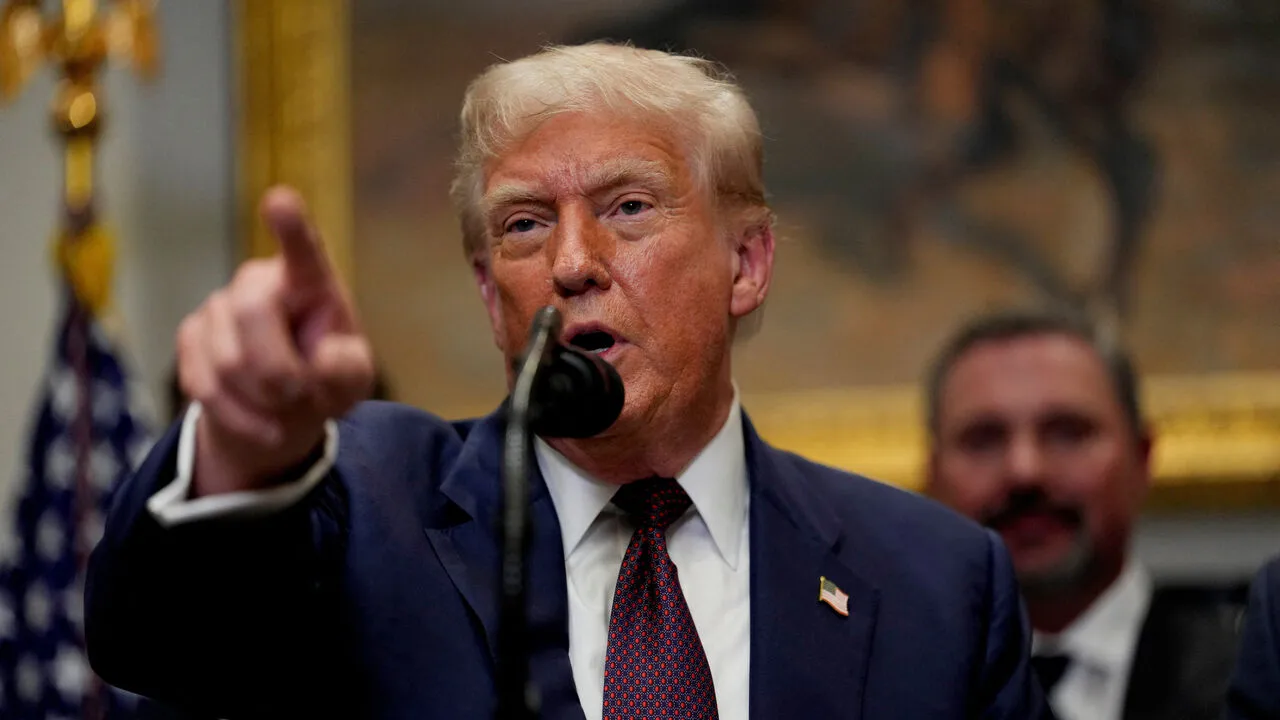In a recent interview with CNBC's "Squawk Box," U.S. President Donald Trump reiterated his commitment to his policy agenda, showing no signs of retreating from his stance on tariffs, the Federal Reserve, and other key issues. The president's comments come as the U.S. economy appears to be slowing, with major stock indexes pulling back on weak ISM data and AMD's earnings falling short of expectations. Trump's remarks suggest that he is digging in on his policies, with modified country-specific "reciprocal" tariffs set to start on August 7 and duties on India to be raised within the next 24 hours.
The Trump administration is turning its attention to sectoral tariffs, with the president announcing plans to impose tariffs on semiconductors and pharmaceuticals. Trump told CNBC that he will announce his tariff plan for semiconductors "within the next week or so" and will impose "a small tariff" on pharmaceutical imports before ratcheting it up to 250% within a year and a half. This move is likely to have significant implications for the tech and healthcare industries, with European semiconductor stocks already falling on the news. The president's decision to impose tariffs on these sectors may be seen as a way to protect American industries, but it also raises concerns about the potential impact on the global economy.
The president also discussed his potential candidates to replace Jerome Powell as Fed chair, including former Governor Kevin Warsh and Kevin Hassett, the National Economic Council director. Trump's feud with the central bank has been well-documented, and his comments suggest that he is looking for a more dovish approach to monetary policy. The selection of a new Fed chair will have significant implications for the U.S. economy, particularly as it appears to be slowing. The July jobs report and ISM Services index have raised concerns about the economy's trajectory, and the new Fed chair will play a crucial role in shaping monetary policy in response to these challenges.
The rift between Moscow and Washington also appears to be deepening, with Trump describing Russia's economy as "stinking" and suggesting that lower oil prices will stop its "war machine." The comments come after relations between the two countries soured in recent weeks, and they are likely to be seen as a further escalation of tensions. Trump's remarks on Russia's economy and his suggestion that lower oil prices will have a significant impact on the country's ability to wage war are likely to be closely watched by policymakers and analysts.
The president's comments on the economy and trade policy have significant implications for investors and businesses. With the S&P 500 on track for second-quarter earnings growth of almost double digits, investors are giving a muted response, according to Goldman Sachs. The imposition of tariffs on semiconductors and pharmaceuticals, as well as the selection of a new Fed chair, will all have a significant impact on the economy and financial markets. As the U.S. economy navigates these challenges, it remains to be seen how Trump's policies will shape the country's economic trajectory.
In conclusion, Trump's interview with CNBC's "Squawk Box" suggests that he is committed to his policy agenda, despite the potential risks and challenges associated with it. The imposition of tariffs on semiconductors and pharmaceuticals, the selection of a new Fed chair, and the escalating tensions with Russia are all likely to have significant implications for the U.S. economy and financial markets. As the economy continues to slow, it remains to be seen how Trump's policies will shape the country's economic trajectory, and whether they will ultimately achieve their intended goals.

